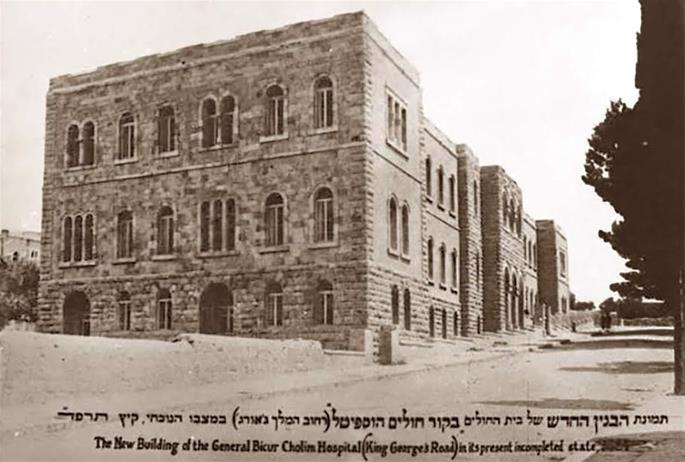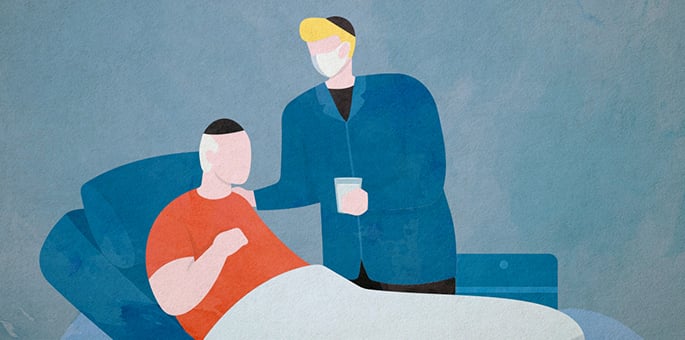1. It is Known as Bikur Cholim
Visiting the sick is a fundamental Jewish value. The Hebrew term for visiting the sick is bikur cholim. (Among Ashkenazi Jews, this is pronounced BICK-er KHO-lim. In Modern Hebrew, it sounds more like bee-KOOR kho-LEEM.)
2. Visiting the Sick Is a Mitzvah
Your presence and smile can go a long way in helping the patient and their caregivers. Although not explicitly legislated in the Five Books of Moses, visiting the sick is considered a mitzvah (obligation).1 So important is this act, that we enjoy both its dividends in This World and the primary reward in the World to Come.2
3. It Has No Limit
Visiting the sick is one of the mitzvahs that has no set limit; each person is encouraged to do it as much as possible, even visiting the same person several times in a single day when it makes sense.3 Those who increase the frequency of their visits are praiseworthy, provided they are actually wanted and do not become burdensome.4
4. Timing Matters
Visiting is not appropriate at all times. Tradition tells us to stay away in the early morning or late hours when the patient is being tended to and may not appreciate a visit. Nor should one visit at any other time they believe their presence will not be appreciated or overstay their welcome.5
5. G‑d Himself Does It
While Abraham was recovering from his circumcision (which he performed on himself at the age of 99), G‑d visited him. The sages tell us that this indicates G‑d Himself visits the sick.6
6. It Removes 1/60th of the Illness
The Talmud teaches that the visitor absorbs one sixtieth of the patient’s sickness.7
7. Make Yourself Helpful
A young student of Rabbi Akiva fell ill, and nobody bothered to visit him. When Rabbi Akiva heard, he himself went to visit. Seeing the deplorable state of the young man, who was not receiving help, Rabbi Akiva himself swept and tidied the room. The grateful student exclaimed: “Master, you have revived me!”8
8. Be Sure to Pray While Visiting
The Talmudic narrative9 asserts that one who visits a sick person and prays for their recovery is considered to have given them life. Conversely, neglecting to visit and pray is comparable to manslaughter.
9. G‑d Is With the Patient
When visiting the sick, one should not sit on a higher surface than the patient. Why? The Divine presence rests on the bed of the sick person, and it would be disrespectful to sit “above” G‑d, so to speak.10
10. No Blessing Is Said
We say no blessing when fulfilling this mitzvah. Why is that? For one, we cannot know in advance if our visit will be well-received. Since we may potentially not perform a mitzvah at all, no blessing is said.11
11. It Applies to Non-Jews As Well
Since the purpose of the Torah is to bring peace and harmony to the world, the sages see it as axiomatic that one should visit non-Jewish patients just as one visits Jewish ones.12
12. There Are Bikur Cholim Societies All Over the World
In many communities, Bikur Cholim societies do just more than just visit the sick. Services may include stocking kosher food in hospitals, providing rides to medical appointments, accommodations for those who must stay near hospitals, childcare and meals for those at home, patient advocacy, and more.
13. Bikur Cholim Hospital Is a Jerusalem Landmark
Since the 19th century, the ill of Jerusalem have been treated in the Bikur Cholim Hospital (now a branch of Shaarei Zedek Medical Center), which operates according to Jewish law and initially provided a vital alternative for Jews whose only other option was to be treated by Christian missionaries. No longer a tiny operation in the Old City, it has remained true to its purpose: Bikur Cholim.









Join the Discussion